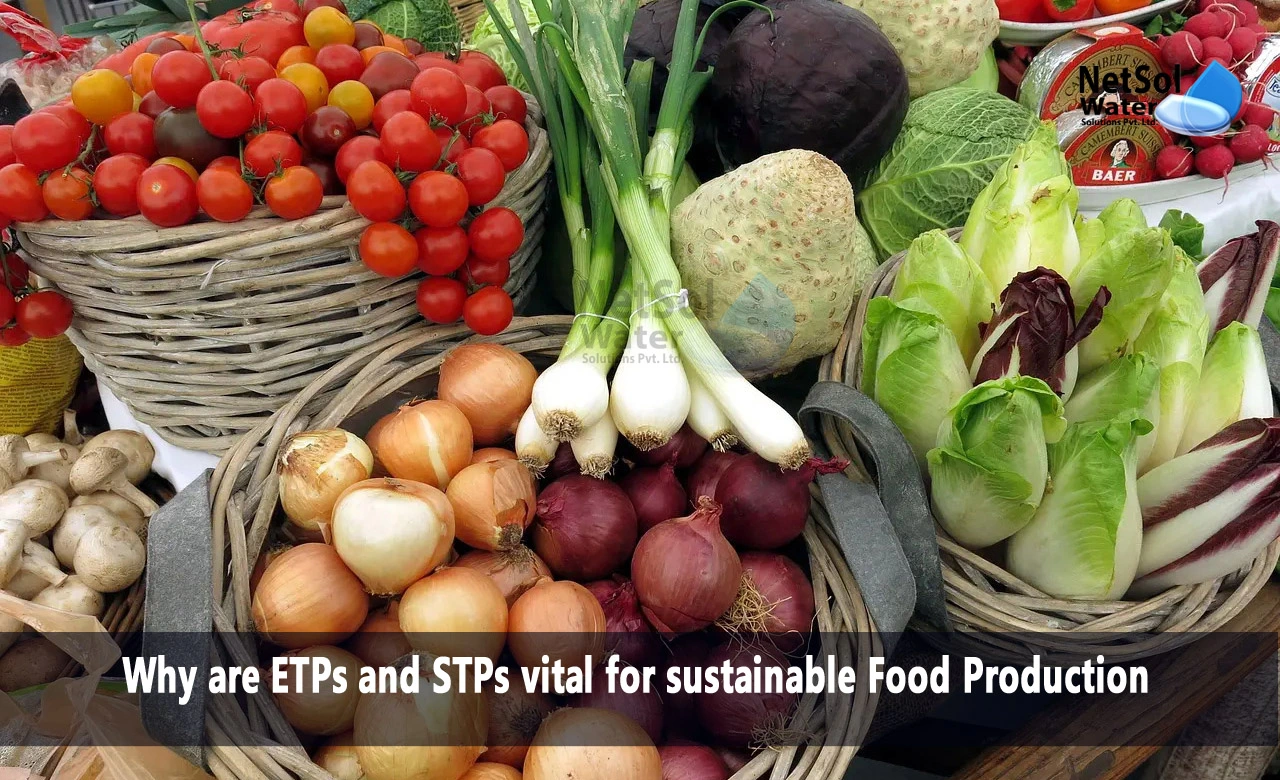Why Are ETPs and STPs Vital for Sustainable Food Production?
Sustainable food production is a critical component of addressing global food security and environmental conservation. The efficient use of resources, responsible waste management, and the reduction of environmental impact are essential for the long-term viability of agriculture and food-related industries. Effluent Treatment Plants (ETPs) and Sewage Treatment Plants (STPs) are pivotal in ensuring sustainable food production. In this blog, we will explore why ETPs and STPs are vital for achieving this goal.
The Importance of Sustainable Food Production
Sustainable food production is cultivating and producing food while minimising negative environmental, social, and economic impacts. It aims to balance, meeting the world's food needs and preserving the planet's natural resources. Sustainable food production offers several key benefits:
1. Environmental Conservation: Sustainable practices help protect natural ecosystems, reduce soil and water pollution, and mitigate climate change by lowering greenhouse gas emissions.
2. Resource Efficiency: Maximizing the efficient use of water, energy, and land resources helps reduce waste and the overexploitation of natural resources.
3. Economic Stability: Sustainable food production systems are often more resilient to external shocks and market fluctuations, helping ensure economic stability for farmers and communities.
4. Health and Nutrition: Sustainable food production promotes healthier and more diverse diets, addressing food security and nutritional needs.
The Role of ETPs and STPs in Sustainable Food Production
1. Reducing Agricultural Pollution
ETPs are crucial in treating industrial and agricultural wastewater, which can contain harmful pollutants like pesticides, herbicides, and chemical fertilisers. Treating this wastewater prevents the contamination of natural water sources, ensuring cleaner water for irrigation and reducing the risk of soil and groundwater pollution.
2. Preserving Water Resources
Water scarcity is a growing concern for agriculture. STPs are essential in treating and recycling wastewater from food processing facilities, allowing them to reuse water for cleaning, cooling, or irrigation. This reduces the demand for freshwater and eases pressure on already stressed water resources.
3. Enhancing Soil Health
STPs can produce nutrient-rich sludge as a byproduct of sewage treatment. This nutrient-rich sludge can be processed and used as an organic fertiliser, improving soil fertility and promoting sustainable farming practices.
4. Minimizing Food Waste
ETPs can be integrated into food processing facilities to treat and recycle organic waste. By converting organic waste into biogas or organic compost, businesses can reduce the environmental impact of food production and contribute to circular economy practices.
5. Energy Efficiency
Many modern ETPs and STPs employ advanced technologies to optimise energy consumption. By generating energy from biogas produced during sewage treatment, facilities can reduce their dependence on fossil fuels and contribute to a more sustainable energy mix.
6. Compliance with Environmental Regulations
Meeting stringent environmental regulations and standards is essential for sustainable food production. ETPs and STPs help businesses and industries comply with these regulations, ensuring responsible and environmentally friendly practices.
Conclusion
Effluent Treatment Plants (ETPs) and Sewage Treatment Plants (STPs) are essential for sustainable food production. They help mitigate environmental pollution, conserve water resources, enhance soil health, reduce food waste, and promote energy efficiency. By investing in ETPs and STPs, businesses, agricultural practices, and food-related industries can not only meet environmental regulations but also contribute to a more sustainable and resilient food production system. In an era marked by environmental challenges and a growing global population, these treatment plants are vital in ensuring the long-term availability of safe and nutritious food for all.
Netsol Water is Greater Noida-based leading water & wastewater treatment plant manufacturer. We are industry's most demanding company based on client review and work quality. We are known as best commercial RO plant manufacturers, industrial RO plant manufacturer, sewage treatment plant manufacturer, Water Softener Plant Manufacturers and effluent treatment plant manufacturers. Apart from this 24x7 customer support is our USP. Call on +91-9650608473, or write us at enquiry@netsolwater.com for any support, inquiry or product-purchase related query.



